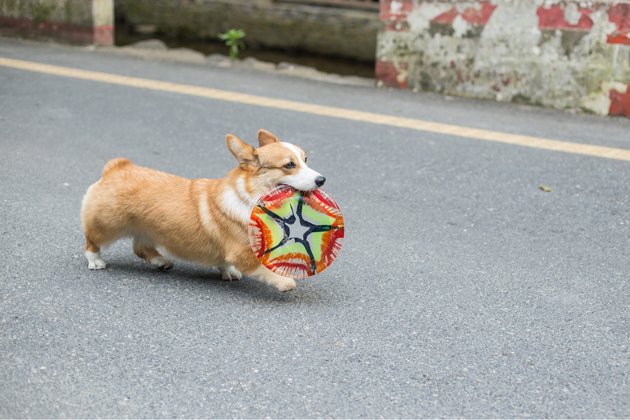
Photo/Shetuwang
Mar. 12 (NBD) -- "Would you like to join the Corgi owner WeChat group?" a dog keeper asked visitors eagerly at the venue of the 8th China (Guangzhou) International Pet Fair (CPF 2019) held on March 8-10.
More than a hundred exhibitors participated in the event to display their pet products.
Last year, CPF 2018 welcomed over 100,000 visitors and international buyers from more than 30 countries.
Guangzhou has been one of the top cities in the number of pet-owning households, besides Beijing, Shanghai, Chongqing and Wuhan.
In China, the town dwellers who raise pets numbered 73.55 million, about 76 percent of which are dog or cat owners, a white paper on China's pet industry of 2018 from pet information website goumin.com revealed.
China's pet economy has been on a fast track of growth since 2010.
The size of the companion dog and cat market jumped by 27 percent year over year to hit 170.8 billion yuan (25.4 billion U.S. dollars), and average consumption per dog/cat registered 5,016 yuan (747.2 U.S. dollars), up 15 percent from the previous year, the white paper reported.
It is predicted that the pet market could exceed 270 billion yuan (40.2 billion U.S. dollars) by 2022, according to research institution askci.
The fast expansion of the sector is closely related to the change of the country's population and family structure.
Statistics showed that the population aging intensifies year by year, with the proportion of people aged 60 and above rising nearly 18 percent in 2018, compared to 13.2 percent for 2010.
In addition, the marriage rate in China dropped from 9.3 percent in 2010 to 7.7 percent in 2017, while more people tend to marry in later life.
Raising a cat/dog has become one of the vital ways of spiritual fulfillment for Chinese people, especially for millennials.
It is noticed that over 75 percent of the dog and cat keepers are born between 1982 and 2000.
Sinolink Securities analyzed in its research report that since most of them have neither sisters nor brothers due to China's one child policy, they are easily seized with the feeling of loneliness and need more company.
What's more, such generation makes purchase decision as they like, with weak awareness of saving money.
With the rapid pace of urban life, millennials are facing heavy financial pressure and have higher requirements for marriage, which results in late marriage and late childbirth, Sinolink Securities held.
"Highly educated", "female" and "white-collar" are the three tags goumin.com's white paper used in the cat and dog keepers' portrait.
The pets, prices of which range from hundreds of yuan to tens of thousands of yuan, are no longer bought for watching over the home.
More than half of companion animals play the role of "children" in the families, and nine out of 10 owners noted they treat their pets as relatives or friends.
Owners are likely to take an anthropomorphic attitude to pets. They care about the appearance and quality of life of the animals and are willing to spend large amount of money on pets.
Email: zhanglingxiao@nbd.com.cn


 川公网安备 51019002001991号
川公网安备 51019002001991号





